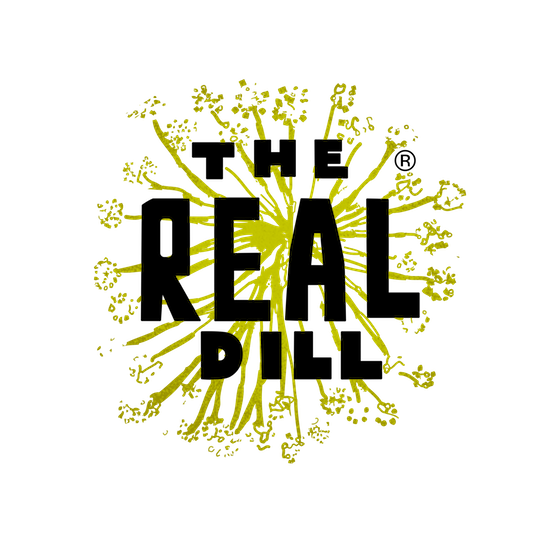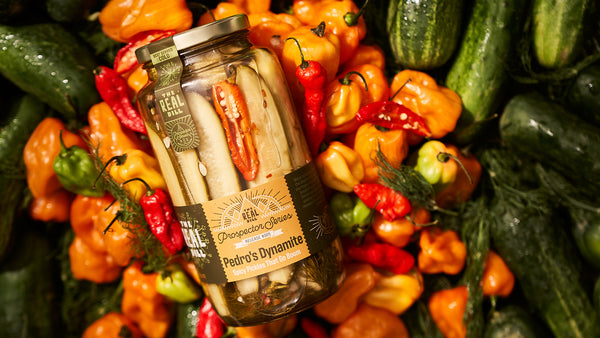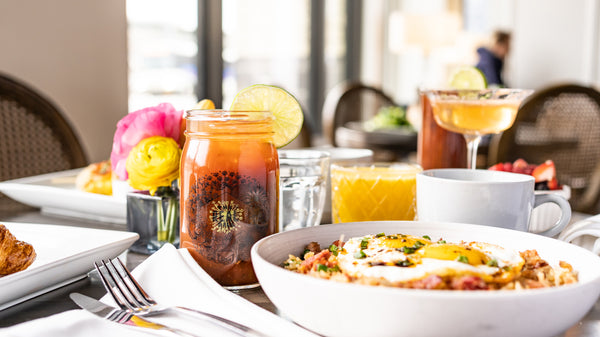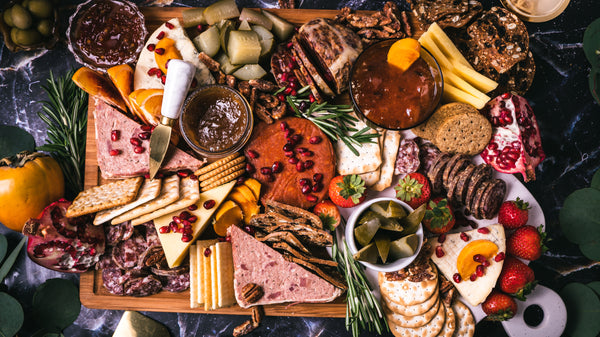Earth Day Every Day: Pickles for the Planet
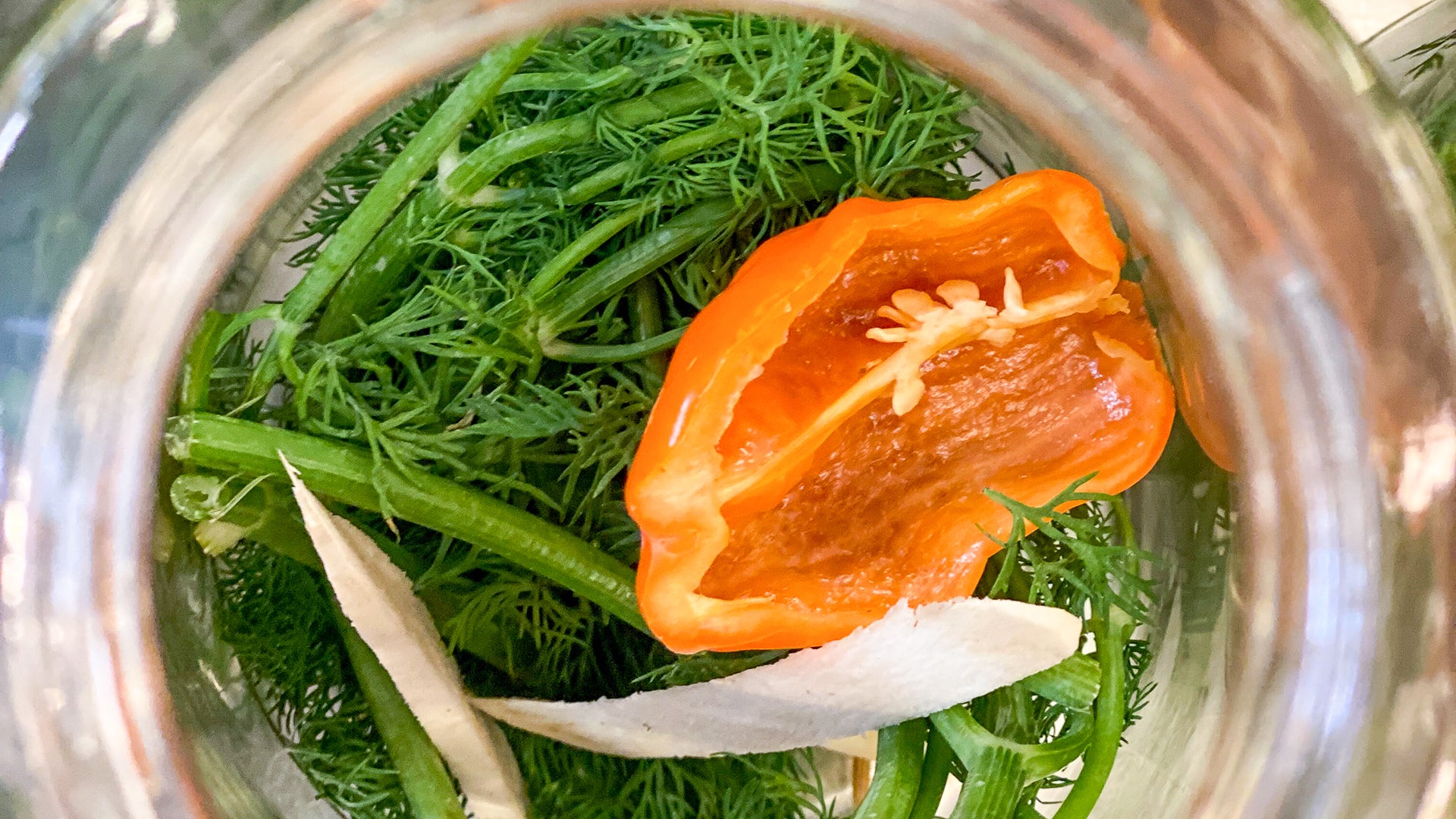
Each year, Earth Day is celebrated on April 22, as a day to teach people about environmental issues, the ways to live a cleaner, greener life, and how to make the earth a better place. At The Real Dill, we treat every day like Earth Day, and we are excited to share all of the environmental initiatives that we have put in place to help us get one step closer to achieving our zero food waste goal.
We believe that if we are not making our community - and the world at large - a better place, our time here will have felt like a waste. Most businesses have resources and reach that the average person does not, which is why we consider it our responsibility to seek out creative ways to leverage our resources in order to make a positive and lasting impact on our environmental footprint and community.
Since our humble beginnings in 2012, we have strived to become a pickle company that achieves zero food waste. Collectively, The United Sates sends about 40% of all produced food to the landfill each year. We always knew that there was a need to cut back on food waste, and we certainly did not want to contribute to this statistic.
You could say that our zero food waste journey officially began with the creation of our Bloody Mary Mix. In The Real Dill's early years, while working the farmers market circuit, many people asked us for a Bloody Mary recipe using our pickle brine. However, we had no intention of making a Bloody Mary mix that we would sell. Instead, we reluctantly came up with a scratch-made Bloody Mary mix recipe that repurposed the ingredients found in our crowd-favorite pickles: Habanero Horseradish Dills.
As our company grew and our pickle offerings expanded, we were faced with an unforeseen challenge. Our pickling process results in a delicious and refreshing cucumber-infused water, which, initially, we were throwing away. The overwhelming smell of fresh cucumbers riddled us with guilt every time we dumped the invigorating liquid down the drain. Since "waste not, want not” is a proverb that we take to heart, we determined that the days of throwing away this fragrant byproduct were over. Instead, we used this as an opportunity to begin experimenting with a Bloody Mary Mix recipe that upcycled the cucumber-infused water and highlighted it as the star ingredient.
Upcycling the cucumber water that we produced was a huge step in the right direction to eliminate our food waste and increase our sustainable efforts. However, it certainly was not the only thing we wanted to do to give back to our community and the environment. When you wash, prep, and cut nearly 4,000 pounds of fresh produce each week, you wind up with a lot of vegetable waste from the scraps. In the beginnings of The Real Dill, we were tossing around 200 lbs of food scraps in the trash every week. Cucumbers, raw horseradish, dill, onions, garlic, and habaneros, and jalapeños were bagged up and taken to the dumpster. Throwing all of the scraps in the landfill never seemed like the best way to dispose of them. So, we partnered with a handful of local nonprofits who turn our food trash into compost treasure that contributes to urban farming and agricultural projects throughout the state of Colorado.
Our first compost partnership formed in 2015 with Re:Vision, a local Colorado nonprofit that repurposed our vegetable scraps into compost for its Westwood community. Westwood is a Denver food desert, and most of the people who live in this neighborhood have limited access to affordable, healthy food. The compost we produced benefited the Westwood community backyard garden program, which 300+ families participate in, annually. Our vegetable compost provided better and more controlled nutrient-rich soil and helped Re:Vision generate revenue, which they allocated towards other programming efforts.
In 2020, the pandemic led to changes, and we pivoted our compost partnership from Re:Vision to The City and County of Denver. This new collaboration utilized our compost for urban farming, public parks, and city parks initiatives. A lot of our scraps assisted in planting trees around local Denver parks. Denver has a very dry and arid climate, which makes it hard to successfully grow plants and trees. The compost we created was an integral part of the tree restoration technique that The City and County of Denver employs.
Last year, we worked with several compost partners, and we diverted about 600 lbs of vegetable waste from the landfill and into the hands of our compost partners. This totaled 31,200 pounds of compost scraps, in 2021. Although our composting abilities were a bit limited last year due to our partners' capabilities, we were able to compost paper towels for the first time, which was a new milestone in our sustainability journey.
Starting this week, we will be embarking on a new partnership with Compost Colorado. Compost Colorado has a unique model where customers can shop for local and sustainable products online and have them dropped off in their clean compost bin. The Real Dill pickles and Bloody Mary Mix have been available for purchase through Compost Colorado since 2019. However, for the first time, Compost Colorado is going to use our food waste for its composting program. A huge benefit of partnering with Compost Colorado is that they will be able to take all of our food scraps and additional waste such as paper products (bags, napkins, tissues, paper towels, and paper tea bags), plants (flowers, leaves, and trimmings), and compostable-ware (products that are labeled ‘compostable’ including cups, lids, bags, and containers). We are so excited for this new partnership, and we cannot wait to see an increase in our composting efforts this year.
Yet, our commitment to environmental conservation does not stop with our composting program, and we are always looking for creative opportunities to increase our sustainability efforts. Earlier this year, we released Malt Miner, our third Prospector Series release. This peach and rosemary infused barrel aged malt vinegar was made from upcycled acetic beer that Baere Brewing Co. could no longer use or sell. Not only were we able to rescue the beer from going down the drain, but we also were able to breathe a new life into this tasty liquid and create our first scratch-made vinegar.
Here are few more of our proud sustainability accomplishments: Since 2016, we have been proudly recognized by the city of Denver and State of Colorado as a Certifiably Green Business, and we achieved Gold member status of the Environmental Leadership Program in 2020.
Several years ago, we developed our staff-led Green Team, which was founded by a handful of our employees. The Green Team has created and implemented new processes so that we can recycle and compost our personal waste, in addition to our company waste, at our production facility. For the second year in a row, The Green Team is planting a new company garden in our back area.
Ten years have passed since we started The Real Dill. Yet, our desire to achieve zero food waste still stands strong. We are proud to divert all of our compostable waste away from the landfill, even if it only makes a small dent in a much larger food waste problem. This Earth Day, we are asking our pickle community to help us become even more sustainable. The next time you finish a jar of pickles, you can help us divert more waste from the landfill by repurposing all of the byproducts in your pickle jars. The pickle brine can be used in delicious marinades, as a base for salad dressings, and as a great addition to cocktails. If you need inspiration on how to upcycle the leftover ingredients in your jar, you can find all of our recipes here.